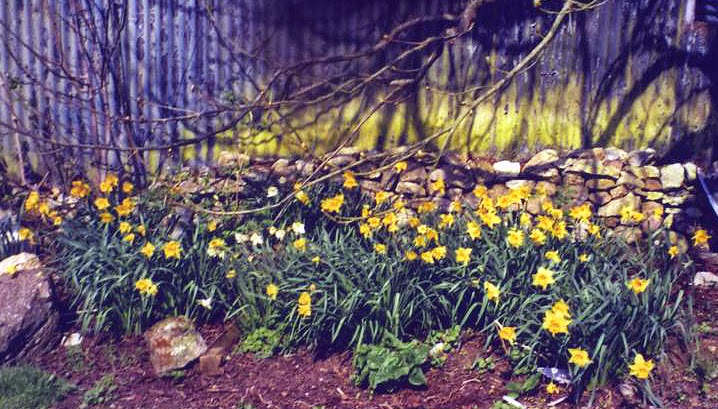It's the day of the daffodil in the French Revolutionary Calendar. 10 things you might not know about daffodils:
- The botanical name is Narcissus, as according to legend they are the flowers that the vain youth Narcissus turned into when he couldn't stop looking at his reflection in the lake. This name means “to benumb” as the plant has narcotic properties. It is also known as jonquil, Paperwhite, the ‘Poet’s Hower’, and in England, because of their long association with Lent, they’re known as the “Lent Lily.”
- The bulbs contain a toxin called lykorine, which is also present in small traces in the leaves. Only certain insects can eat this with impunity. Squirrels will not eat daffodil bulbs, no matter how hungry they are.
- The sap is toxic to other plants, so mixing daffodils with other flowers in a vase is not a good idea, unless the daffodils have already been soaked in water separately for 24 hours and the stems are not re-cut. There is a skin disease sometimes found in florists known as "daffodil itch".
- The UK is the world's biggest producer of daffodils. Half of the world's daffodil bulbs come from here, 10,000 tons of them, worth £7 million.
- China may well be one of our customers, as according to Feng Shui, if you can force a daffodil to flower at Chinese new year it is very lucky.
- Poultry keepers wouldn't agree. They thought the flower to be unlucky and would not have it in their homes, as they believed it would stop their hens from laying Eggs. It's also thought to be unlucky to give someone a single daffodil flower.
- The daffodil is the national symbol of Wales, along with the Leek. It is worn on St David’s day. In old Welsh, the word for daffodil and for leek are similar: (Cennin = Leek, Cenhinen Pedr = Daffodil). It is said in Wales that if you spot the first daffodil of the season, your next 12 months will be filled with wealth.
- Prince Charles is gets one daffodil each year as rent for land on the Isles of Scilly.
- The Arabs used the juice of the wild daffodil as a cure for baldness. High born ladies in medieval times used the yellow flower dye to tint their hair and Eyebrows.

No comments:
Post a Comment